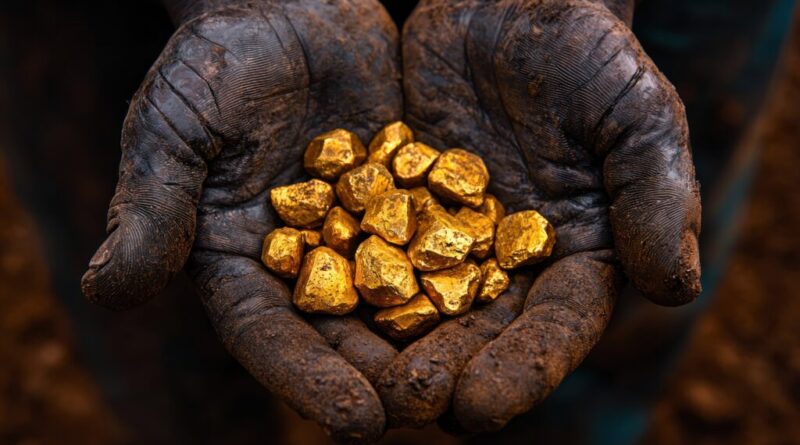Are African Nations Aware of Their Mineral Riches?
Picture operating a business for over a hundred years without having a clue about your inventory. This is akin to what numerous African countries face regarding their mineral resources. Governments across the continent possess limited knowledge of the valuable assets hidden beneath their soil.
During the 18th to 20th centuries, European colonial powers drained Africa of its mineral wealth to fuel their industrial expansion. After gaining independence, many African nations nationalised their mining sectors. However, international pressures led to significant privatisation in the 1980s, undermining governments’ long-term planning capabilities and incentives. Consequently, there is now a greater focus on exporting minerals for short-term foreign exchange benefits.
ADVERTISEMENT
CONTINUE READING BELOW
As political economists, we have spent over a decade examining the governance of Ghana’s and Rwanda’s mineral sectors. Our research investigates why some African nations are investing more in geological exploration than others, essential studies that identify potential mineral locations and assess their economic viability. We selected Ghana and Rwanda due to their differing levels of commitment towards investing in geological exploration.
Our findings reveal that fierce political competition compels Ghanaian governments to prioritize short-term results, making geological exploration—a long-term, risky initiative—less appealing to political elites. Conversely, the Rwandan Patriotic Front has dedicated resources to geological surveys over the past decade.
Factors that impact investment decisions in geological mapping extend beyond economic and technical concerns; context-specific political dynamics, including interests, ideas, and power relationships, play a significant role.
A Mixed Search
Ghana is abundant in various minerals, being the largest gold producer in Africa, which serves as its top export revenue source. In 2024, minerals generated $11 billion in revenue.
The nation also possesses significant deposits of diamonds, manganese, and bauxite, and has recently identified lithium in commercial scales. Lithium, termed a “critical mineral,” is essential for the energy transition, making this discovery appealing to investors.
Rwanda produces tin, tantalum, and tungsten, along with commercial deposits of gemstones, silica sands, kaolin, vermiculite, diatomite, clays, limestone, and gold.
Experts and international organizations often advocate for government investments in geological mapping to stimulate greater sector investments and enhance national gains from resources. However, such investigations involve high costs, and lucrative discoveries are not guaranteed.
Some African governments exhibit limited commitment to geological mapping investment. In contrast, others like Uganda, Morocco, Botswana, and South Africa have allocated resources to these efforts. For instance, Uganda has announced plans to increase its geological mapping coverage from 50% to 100%.
Ghana’s Knowledge Deficit
The roots of this knowledge deficit trace back to colonial times when European powers meticulously charted African minerals, but kept that information to themselves. Presently, the British Geological Survey holds over 300,000 geological maps and reports from various countries, much of which remains archived rather than facilitating African governments in understanding their resources.
Even fundamental geological insights frequently reside in locations like London, Paris, or Brussels instead of Accra, Kigali, or Nairobi.
Take Ghana, for example, which has mined gold for over a century but still lacks comprehensive geological surveys.
We discovered that Ghana’s competitive political environment, marked by power shifts between two dominant parties roughly every eight years, hampers long-term planning. Successive governments have depended on private mining firms for geological investigations, with little oversight to ensure those investigations precede mineral extraction. This approach has significant flaws: mining firms might withhold findings, and the government lacks control over crucial information regarding its own resources.
Evidence also suggests a darker political calculus. Licensing arrangements allow political elites to foster lucrative ties with mining companies. Comprehensive geological mapping could necessitate more transparent and competitive bidding processes, potentially disrupting these established relationships, including vested political interests within small-scale and artisanal mining.
Rwanda’s Distinct Path
Rwanda presents a contrasting narrative. Since 1994, the Rwandan Patriotic Front has sought to control various societal aspects, developing longer-term developmental ambitions as a result.
The government has prioritized understanding its mineral landscape and has taken concrete steps to enhance its capabilities.
ADVERTISEMENT:
CONTINUE READING BELOW
Firstly, it has revised its mining laws. Initially, the Rwandan government allowed foreign firms to obtain permits on a first-come, first-served basis, mandating geological investigations before extraction, though monitoring was lacking, much like in Ghana.
Secondly, Rwanda established its own mining company, Ngali Mining, to directly invest in exploration activities.
Thirdly, the government actively attracted investment for geological surveys, gaining support from donors. As a result, it directly employs geological investigation firms rather than depending solely on mining companies for explorations.
The outcomes are noteworthy: between 2012 and 2016, the government lured four North American and European firms to conduct extensive mapping studies.
Fourthly, these surveys led the government to reorganize existing mining regions into 52 distinct areas for mineral exploration. This strategic re-categorization now attracts investment due to increased understanding of the present mineral deposits.
It’s important to note that Rwanda imports many minerals from the neighboring Democratic Republic of Congo for re-export. This practice ensures immediate foreign exchange earnings, especially evident in the recent rise of Rwandan gold exports. Thus, even when governments express a desire to invest in geological investigations, short-term priorities often take precedence, complicating long-term goals in domestic mining sectors.
Breaking the Knowledge Barrier
The worldwide demand for minerals is escalating.
This urgency makes the development of comprehensive knowledge about underground resources critical for African nations. However, our research indicates that merely increasing funding for geological surveys won’t transform domestic minerals sectors if political incentives continue to favor short-term interests.
Understanding the political dynamics surrounding these investments is essential for unlocking Africa’s mineral potential. Only by comprehending the power structures that influence these decisions can countries begin to chart a path toward sustainable mineral wealth.![]()
Gerald Arhin, Research Fellow in the Political Economy of Climate Compatible Development, UCL and Pritish Behuria, Reader in Politics, Governance and Development, Global Development Institute, University of Manchester
This article is republished from The Conversation under a Creative Commons license. Read the original article.

